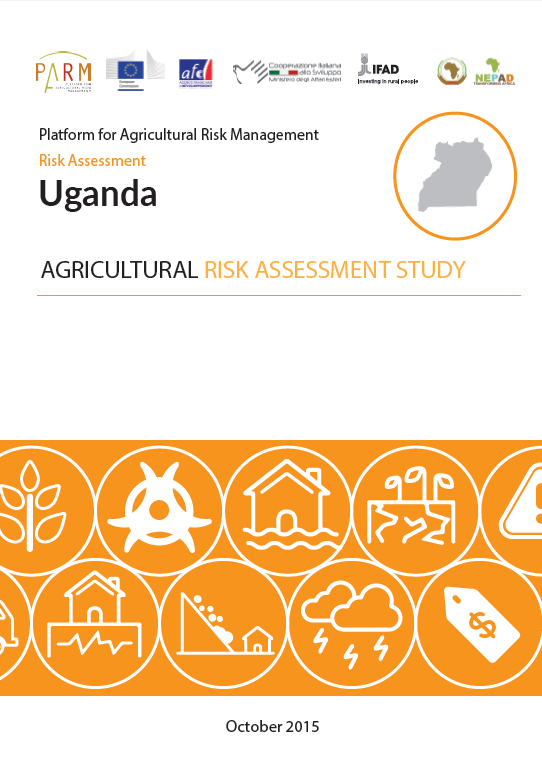Every day, the livelihoods of farmers in Uganda are threatened by various risks. Agricultural Risk Management (ARM) can significantly contribute to improving the resilience of vulnerable rural households by increasing their capacity to absorb and adapt to risks. In order to better support its farming population, the Government of Uganda under the leadership of the Ministry of Agriculture, Animal Industries, and Fisheries (MAAIF) in collaboration with the Platform for Agricultural Risk Management (PARM) and NEPAD has undertaken efforts to better understand and analyze risk, and to develop an agricultural risk management strategy aimed at reducing the risk exposure of farmers.

This Risk Assessment Study (RAS) is intended to help the stakeholders in Uganda develop a common understanding of the risk exposure of farmers and build a consensus on the priority areas for agricultural risk management in the future. The purpose of the study is to gather available quantitative information on agricultural risks in Uganda and their incidence on producers. The study develops a scoring method to quantify the severity and frequency of these risks to facilitate the prioritization in risk management decisions. Among the risk priorities identified in this exercises, price fluctuations, pest and diseases, and post-harvest losses were ranked highest in the scoring.
Preliminary results of this report have been incorporated into the new Agricultural Sector Strategy Paper 2014/15-19/20 (ASSP). Thus, this final report is intended to provide the stakeholders with solid information on agricultural risks in Uganda so as to allow for evidence-based implementation of the ASSP and the development of initiatives and programmes in line with the ASSP for agricultural risk management in the country.
The report is structured in the following manner:
- Chapter 1 provides an overview of the agricultural sector and the main parameters relevant to agricultural risk (e.g. soils, climate, and production systems).
- Chapter 2 analyzes the risk exposure of Uganda and provides a description of all major risks in agriculture.
- Chapter 3 describes the political and institutional framework for agricultural risk management and lists the major initiatives and programmes currently dealing with the various agricultural risks.
- Chapter 4 provides a systematic quantification of economic (and social) impacts of agricultural hazards and likelihood of events.
- Chapter 5 provides a summary of all the analysis and a prioritization of risks for Uganda. This final chapter also provides recommendations for improved agricultural risk management in the future.
The Risk Assessment Study on Uganda is being launched on the 28th of October in Kampala on the occasion of the 6th Commemoration of the African Day on Food and Nutrition Security.
DOWNLOAD
- PARM Risk Assessment Study in Uganda – Executive Summary
- PARM Risk Assessment Study in Uganda – Full Report
